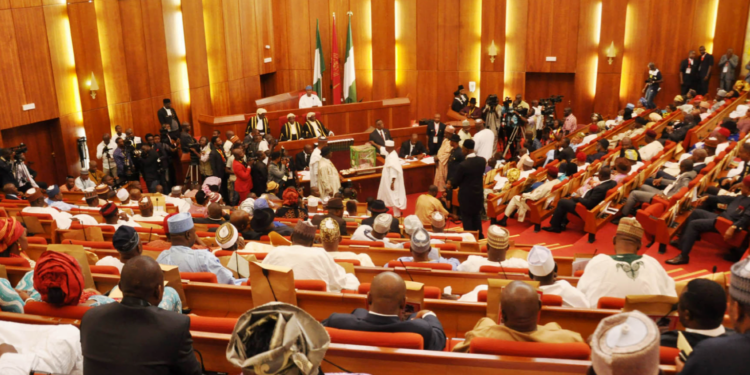The Senate Committee on Health Chairman, Ibrahim Oloriegbe, has explained why the bill prohibiting Nigerian-trained medical or dental practitioners from leaving the country until after 5 years of practice will fail.
WITHIN NIGERIA reports that a bill sponsored by Ganiyu Abiodun Johnson proposed withholding doctors’ and dentists’ licenses to prevent them from leaving the country within five years of qualifying.
According to Johnson, this will help to slow the country’s mass exodus of doctors. On Thursday, the bill passed the second reading in the House of Representatives.
In a series of tweets on Saturday, Oloriegbe stated that the bill’s sponsor clearly does not understand how medical licenses work.
The senator, who is also a doctor, explained why Johnson’s strategy to address the problem of brain drain in the health sector cannot work.
This factors responsible for brain drain are multifaceted and the mere denial of full practice license to medical practitioners as contained in the proposal will never resolve and may even aggravate them.
“b) What sort of license will be awarded to a fully trained doctor instead of a full license to practise under the proposal?
*c) Is there going to be a limit in the doctor’s scope of practice, and to what extent are the limits during the five years waiting period? And we need to establish why we are putting such limits; is it for lack of skills, or political expediency?
d) What happens after the five years of denial of rights to practise?
*e) Consequently, how will this law advance the quality of clinical services, education, and research in any system, let alone, a crippled one like ours?
The Senator advised that resolving the challenge of brain drain in the health sector will require the government to address the various factors that make skilled health workers desire to migrate out of Nigeria.
I, therefore recommend that rather than enacting laws that will curtail the rights of the citizens to free movement and seek better opportunities through legal means, we should advocate for an improved system that will be very attractive and make medical practitioners unwilling to travel abroad to seek better living conditions. That is, we have to make our pastures to be greener so that other people’s pastures won’t be tempting to them.
We can achieve this through the following recommendations:
i. Medical students could be obliged to choose between paying the standard market rate for their training or opting for government-subsidized training. Quality education in its real sense can’t be free.
Those who however opted for subsidized training after their qualification would in return be compelled to work in Nigeria for a certain time or refund the subsidies. This is a practice obtainable even in advanced countries such as the UK.
ii. To achieve the goal of a mandatory work scheme, we can enable a system that will guarantee employment opportunities for medical professionals after their qualification and provide inflation-adjusted living earnings for a few years after graduation on the condition that they stay in Nigeria to practice. Apart from providing attractive remunerations, their work environment and career expectations should also be prioritized. Incorporating both measures should give us satisfactory results.
iii. Lastly and importantly, we need to improve our health system with sustainable investments to make it conducive for the various health workers to work. We can be assured of better outputs only if what we input is in good condition.










Discussion about this post